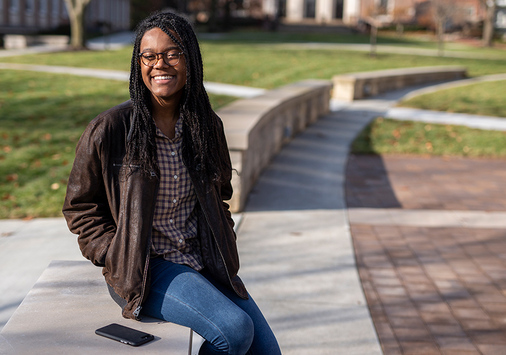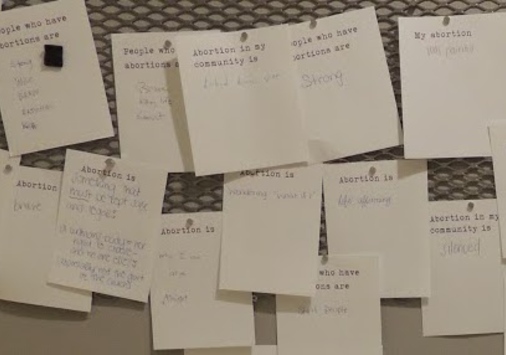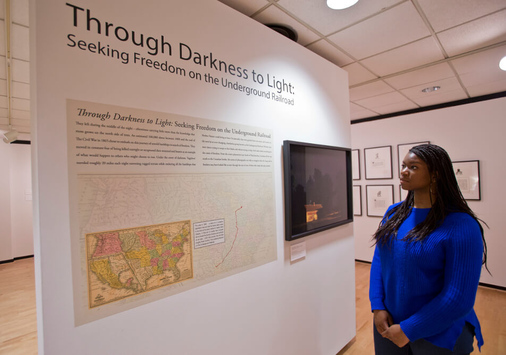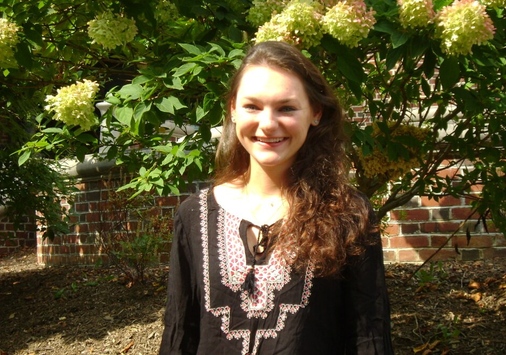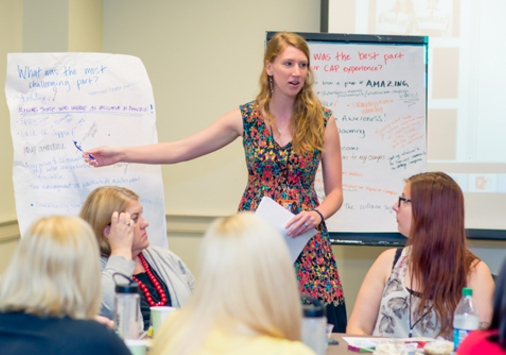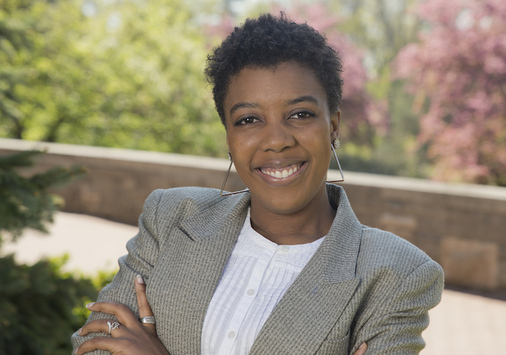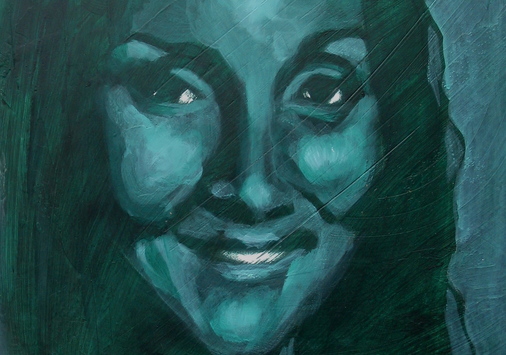Degree Requirements
Information presented from the 2024 - 2025 Academic Catalog.
Mission Statement
The Women's and Gender Studies Program at Denison University takes its mission to be three-fold: to foster a critical awareness of, and intellectual sensitivity to, content, method and real-life implications of the field.
First, we aim to engage students in the intellectual content of the discipline: women's issues, the role of gender, and the intersections of gender and other politicized aspects of "identity," including race, class, age, religion, disability, and sexuality.
Second, we strive to instill in students an appreciation of the holistic and interdisciplinary character of Women's and Gender Studies. This is not just a question of content but also of method; Women's and Gender Studies scholarship uses methods that are inflected by interdisciplinarity and transnationalism. Students explore how Women's and Gender Studies treats gender issues from the perspectives of different disciplines, such as anthropology, biology, Black studies, communication, data analytics, East Asian studies, global health, international studies, music, philosophy, politics and public affairs, religion, sociology, visual arts, etc. and how these issues manifest differently in different national and transnational contexts. Students thus develop their understanding of these issues by taking into account the intersections among this array of disciplines and sociocultural and geographic locations.
Third, we aim to show students the real-life and everyday implications of their academic engagement. That is, we challenge students to see the relationship between theory and practice: to see how the academic study of race, class, and gender locally and globally is informed by and has the power to transform real lives, both others' and our own.
Curricular Goals
Denison's Women's and Gender Studies faculty are dedicated to helping students develop rigorous analyses of culture, politics, ideas and text, as well as creative leadership skills. We hope to impart to our students the history, analysis and practice of feminist scholarship, means of creative expression for their intellectual interests and concerns, and political service and activism.
Students are required to take an introductory course, WGST 101 - Issues in Feminism, a feminist methods course, WGST 310 - Feminist Research Methods, and a feminist theory course, WGST 311 - Feminist Theory. Majors are also required to undertake a semester- or year-long senior project—a research, activist, artistic inquiry, and/or internship experience— WGST 451 - Senior Research and/or WGST 452 - Senior Research. Students select additional, usually cross-listed courses according to Women's and Gender Studies Program guidelines and their own interests.
The required courses in the major and minor explore gender and justice issues, provide the methods and information to conduct rigorous analysis, engage our students in ways that challenge them to expand their thinking about the material they meet in the world, and give them the opportunity to embody feminist pedagogies. The elective courses will do the same in the context of their fields of study.
Students have the opportunity to participate in a variety of off-campus study programs, internships, fellowships, and research projects that acquaint them with women's and gender issues (information available through the Center for Global Programs, Knowlton Center for Career Exploration, and Lisska Center for Intellectual Engagement). Students are encouraged to develop leadership skills by taking an active part in campus life, including engaging in projects developed inside and outside the academic program. Such projects have included a national grant application, a campus-wide study on violence, and a benefit concert. Students have worked with the Center for Belonging and Inclusion, Office of Multicultural Student Affairs, Denisonians for Planned Parenthood, and It’s My Pleasure, as examples.
The Women's and Gender Studies Program sponsors regular symposia on gender issues that include presentations by scholars, artists, and activists from across the United States and abroad as well as our own faculty. With the support of the Laura C. Harris endowment, the Women's and Gender Studies Program has hosted internationally renowned scholars including Linda Alcoff, M. Jacqui Alexander, Gloria Anzaldúa, Judith Butler, Angela Davis, Cynthia Enloe, Anne Fausto-Sterling, Nancy Fraser, Jack Halberstam, bell hooks, Ericka Huggins, and Winona La Duke. The Women's and Gender Studies Program has an institutional membership in the National Women's Studies Association (NWSA) and has sponsored student memberships and conference participation.
Women's and Gender Studies Major
Women's and Gender Studies majors are required to take a total of 32 credit hours. Students may sign up for a course either under the department number or under the Women's and Gender Studies number. Both numbers will count toward the Women's and Gender Studies major or minor. No more than two courses at the 100 level may count toward the major. All Women's and Gender Studies majors must take the following:
- Required core courses:
WGST 101 - Issues in Feminism (4 credits)
WGST 310 - Feminist Research Methods (4 credits)
WGST 311 - Feminist Theory (4 credits)
WGST 451 - Senior Research and/or WGST 452 - Senior Research (4 credits) - Four elective courses in WGST and/or cross-listed with WGST (subject to the following distribution constraints):
- One course on women of color in the United States.
- One course on transnational feminism.
- Three courses that meet three of the four distribution requirements - Humanities, Arts, Social Sciences, and Sciences. Courses selected under (a) and/or (b) may also help satisfy the requirements of (c). These courses may be offered in WGST and/or cross-listed with WGST.
- At least one of the above courses must be cross-listed with Black Studies.
WGST 310 - Feminist Research Methods (usually offered in Spring semester) and WGST 311 - Feminist Theory (usually offered in Fall semester) should be taken, ideally, before Senior year; if student is going off campus during Junior year, plan accordingly.
Students are encouraged to consult with the Director of Women's and Gender Studies in selecting their courses.
Women's and Gender Studies Minor
Women's and Gender Studies minors are required to take a total of 24 credit hours. No more than two courses (including WGST 101 - Issues in Feminism) will be at the 100-level. All Women's and Gender Studies minors must take the following:
- Required core courses:
WGST 101 - Issues in Feminism (4 credits)
WGST 310 - Feminist Research Methods (4 credits)
WGST 311 - Feminist Theory (4 credits) - One course cross-listed with Black Studies.
- One course on transnational feminism.
(Requirements 2 and 3 may be satisfied by the same course.) - One additional elective in WGST or cross-listed with WGST.
Students are encouraged to consult with the Director of Women's and Gender Studies in selecting their courses.
Additional Points of Interest
Black Studies Cross-listed Courses
WGST majors/minors are required to take at least one course cross-listed with Black Studies (BLST). In addition to the Women of Color in the U.S. courses listed below, Intermediate Topics (WGST 250-254) and Advanced Topics (WGST 350-354) courses cross-listed with BLST fulfill this requirement.
Transnational Feminism Courses
WGST majors/minors are required to take at least one course that fulfills the Transnational Feminism requirement. Intermediate Topics (WGST 250-254) and Advanced Topics (WGST 350-354) courses may fulfill this requirement in addition to the courses listed below:
| Code | Title |
|---|---|
| WGST 227 | Women's Spiritual Activism |
| WGST 276 | Gender, War and Conflict |
| WGST 306 | Transnational Feminism |
| WGST 321 | Ethics of Peace and War |
| WGST 327 | Women and Social Ethics in the Global Context |
Women of Color in the U.S. Courses
WGST majors are required to take at least one course that fulfills the Women of Color in the U.S. requirement. Intermediate Topics (WGST 250-254) and Advanced Topics (WGST 350-354) courses may fulfill this requirement in addition to the courses listed below:
| Code | Title |
|---|---|
| WGST 265 | Black Women and Organizational Leadership |
| WGST 325 | African-American Women's Literature |
| WGST 391 | Critical Pedagogies: Gender, Race and Class in U.S. Education |
General Education (GE) Credits in Women's and Gender Studies
All WGST courses fulfill the Interdivisional (I) GE requirement. In addition, many WGST courses also fulfill the Power and Justice (P), Oral Communication (R), and Writing (W) GE requirements. For example, WGST 101 - Issues in Feminism fulfills the I, P, and R GE requirements.
Honors and Awards
Eloise A. Buker Fellows
Every year, the Women’s and Gender Studies Committee names a number of rising Senior and Junior majors or minors as Eloise A. Buker Fellows. This honor is given in the name of Eloise A. Buker, who was a Professor of Political Science and Director of Women’s Studies at Denison University from 1993 to 2002. Fellows are nominated based on students’ demonstrated accomplishments in their academic excellence both in Women’s and Gender Studies and across their degree programs, their demonstrated leadership, and their contributions to the campus community, particularly as it relates to gender.
Nan Nowik Memorial Awards
Every year, the Women’s and Gender Studies Program presents its annual awards in honor of the late Dr. Nan Nowik, Associate Professor of English (1972-1988), former Women’s Coordinator, and co-founder of the Women’s Resource Center at Denison University. The awards celebrate outstanding feminist and gender-related student work in academic scholarship, activism, and artistic expression.
Conference and Professionalization Opportunities
National Women’s Studies Association Conference
The Women's and Gender Studies Program has an institutional membership with the National Women's Studies Association (NWSA) and regularly sponsors student memberships and conference participation.
Additional Conference Opportunities
The Laura C. Harris endowment supports students to attend local, regional, and national conferences each year, including the American Association of University Women (AAUW) National Conference for College Women Student Leaders, GLCA (Great Lakes Colleges Association) Women’s, Gender, Sexuality Studies (WGSS) Collective Undergraduate Conference, Kentucky Gender and Women’s Studies Conference, and others.
Off-Campus Study
Students may complement their Women’s and Gender Studies major/minor with off-campus study. Denison University is a member of several consortia that offer course credit through off-campus programs. Those with course offerings relevant to Women’s and Gender Studies majors/minors include:
- American University of Paris
- Arcadia’s direct enroll university programs (UK, Ireland, New Zealand, Australia, South Africa)
- DIS Copenhagen - Prostitution & the Sex Trade
- DIS Stockholm - Gender and Sexuality Studies
- CGEE Central America - Peace, Justice, and Community Engagement
- CGEE Mexico - Migration, Gender and Social Change
- CGEE South Africa - Nation Building, Globalization and Decolonizing the Mind
- HECUA Minnesota - Inequality in America: Policy, Community, and the Politics of Empowerment
- SIT The Netherlands - International Perspectives on Sexuality and Gender
- The Philadelphia Center
Students should check globaltools.denison.edu for the most up-to-date program listings and information, as the list of programs is subject to change.
The Women’s and Gender Studies Program is committed to awarding credit for courses offered through these programs that provide a sufficient focus on women’s and gender issues. With prior approval from the Director of Women’s and Gender Studies, a maximum of two off-campus courses may be counted toward the requirements of the WGST major/minor. Financial aid may be available for off-campus programs.
Laura C. Harris Endowment
The Laura C. Harris Endowment was established in 1990. Dr. Harris was a member of the Denison class of 1916, and the Endowment serves as a tribute to her commitment to women’s achievement and her belief in the importance of undergraduate education.
The goal of the Laura C. Harris bequest is “to enhance and promote the education of young women as students and as professionals and serve to promote the career opportunities and carry on the pioneering spirit of women students at Denison University.”
Laura C. Harris Summer Scholars
Laura C. Harris Summer Scholarships are part of Denison’s Summer Scholar program, and proposals are evaluated by the Student Research Grants Committee. Summer Scholars funded by this endowment will normally have done some coursework in Women’s and Gender Studies. Their projects should align with the goals and objectives of the Women’s and Gender Studies Program, which are to foster a critical awareness of and intellectual sensitivity to the content, methods, and real-life implications of the field. Thus Laura C. Harris Summer Scholars should draw on feminist scholarship and methodologies and should be attuned to the interdisciplinary nature of the field. While students may take up a particular disciplinary perspective in their summer research (e.g., psychology, anthropology, economics, literary studies, history, philosophy, biology, dance, etc.), their project should reflect an engagement with women’s and gender studies. Projects may aim to develop students’ understanding of gender and its socio-political meanings in our lives; the relationship between gender and other aspects of identity (such as race, class, age, ethnicity, nationality, religion, disability, and sexuality); or the central relationship between theory and practice. Topics may include but are not limited to transnational feminist issues, sexual and gender violence, equal rights, and the workings of power in social institutions, reproductive technologies, body image, and queer politics.
Laura C. Harris Summer Scholars must be advised by someone familiar with the discipline of women’s and gender studies. Normally, this will be a member of the Women’s and Gender Studies faculty (i.e. someone either appointed in Women’s and Gender Studies, teaching cross-listed courses in the program, or serving on the Women's and Gender Studies committee). Four to eight Laura C. Harris Summer Scholarships are typically awarded every year, depending on the number of qualifying proposals. The fund covers both student and faculty stipends.
Laura C. Harris Series
The Women’s and Gender Studies program coordinates the Laura C. Harris Series, which focuses each year on a particular theme related to women and gender issues (e.g., “Sex, Science, and Society,” “Citizenship Through a Feminist Lens,” “Feminism and War, Feminism and Peace,” “Imagining Together: Indigenous Feminisms and Activisms”). The Series includes talks, workshops, performances, and exhibits by scholars, activists, and artists from across the U.S. and abroad as well as Denison faculty. The Laura C. Harris Series has hosted internationally renowned guests such as Linda Alcoff, M. Jacqui Alexander, Gloria Anzaldúa, Judith Butler, Patrisse Cullors, Angela Davis, Cynthia Enloe, Anne Fausto-Sterling, Nancy Fraser, Jack Halberstam, Joy Harjo, bell hooks, Ericka Huggins, Winona La Duke, Sarah S. Richardson, Joan Roughgarden, Banu Subramaniam, and Alison Wylie.



